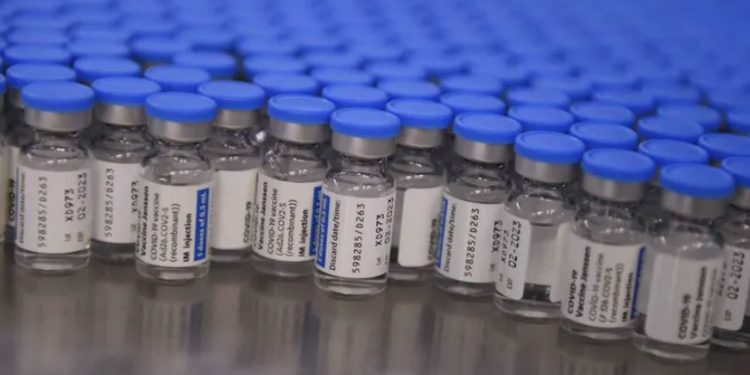Sydney: Research institutes and pharmaceutical company in Australia’s state of Victoria have created a new mRNA Covid vaccine candidate, with clinical trials to begin early next year.
The vaccine candidate, developed by Monash University researchers, pharmaceutical manufacturer IDT Australia and the Peter Doherty Institute for Infection and Immunity, is expected to provide protection against future Covid variants.
Professor Colin Pouton from Monash University, who led the team that developed the vaccine, said on Tuesday that this vaccine has the ability to rapidly adjust its composition in response to emerging virus mutations, which is particularly important as new strains continue to emerge, Xinhua news agency reported.
Compared with the existing vaccines, the new candidate focuses on a small part of the spike protein, known as the receptor-binding domain (RBD), which mediates the virus’s ability to attach and enter the cell.
Through targeting the RBD region, the vaccine candidates focus the immune system on blocking virus attachment and infection.
Pouton said this approach makes it a more focused vaccine with the important ability to rapidly adjust its composition in response to emerging mutations, including the new variant Omicron — if the virus mutates, a new vaccine can be tested within a few weeks.
“The new variant Omicron has an unprecedented number of mutations in its receptor-binding domain. How concerned we should be about this variant remains to be seen, but our RBD mRNA vaccine programme is perfectly suited to producing a specific vaccine to protect against this new variant,” he said.
Associate Professor Archa Fox, an mRNA researcher at the University of Western Australia and president of the RNA Network of Australia, said the vaccine candidate is a significant step forward towards Australia’s first home-grown mRNA vaccine, as the country cannot always rely on the global supply.
“Because of the high cost of buying vaccines from overseas, and the potential to be at the back of the queue for future pandemics, we urgently need to build expertise, capacity and capability in Australia to make mRNA vaccines and RNA therapeutics more broadly,” said Fox.
About 450 doses of the vaccine candidate have been manufactured, enabling 150 people to take part in Phase 1 clinical trials, with results expected in later 2022.







































